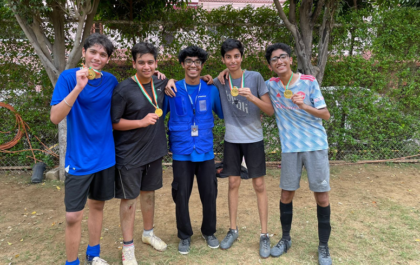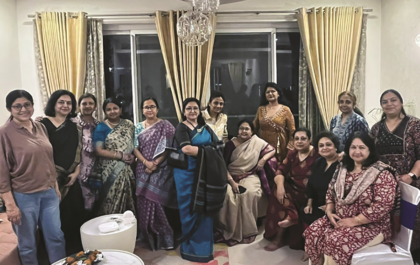Master Kishan (name changed), a 12-year-old male child studying in the sixth grade, was brought to the psychiatric outpatient department with complaints of self withdrawal, depressed mood, restlessness, irritation, insomnia, and difficulty concentrating on activities for the past one month. When parents were questioned about his current illness history, it was revealed that he had received a tablet with an internet connection in order to attend his online classes during the Covid 19 pandemic. Initially, he began using the tab for the purpose of attending online classes, but he soon began browsing the internet for games, watching online movies and videos, and started engaging in social media activities. He would use social media, play online games, or surf the internet for answers to subject-related questions. His internet usage increased gradually, eventually reaching 4-6 hours per day, as he used his free time to participate in online activities. According to his parents, he would be unable to control the amount of time spent online and would instead attempt to prolong it by claiming that it was only a matter of a few more minutes. Even after beginning physical education classes at school, he would think about how he could spend his free time online and remained preoccupied with this thought. As a result, he was unable to devote sufficient attention to his studies.
He began to stay awake until the late night for surfing the internet. When his parents questioned him for wasting time, he would become irritated and angry with them, but he would not give up his internet use for the time being. He performed poorly in the examination as a result, as compared to his good performance in the previous examination. This pattern persisted for a period of six months. Following that, the patient began to gradually withdraw himself from the surrounding. He gradually stopped interacting with any of the family members. He stopped showing interest in playing with his siblings and other children’s. He would not ask food by himself and eat only half of the previous amount when persuaded. His parents also complained that, he is not sleeping for normal duration and awake for late night. On physical examination he found weak and malnourished. His haemoglobin level was low and mildly anaemi Master Kishan (name changed), a 12-year-old male child studying in the sixth grade, was brought to the psychiatric outpatient department with complaints of self withdrawal, depressed mood, restlessness, irritation, insomnia, and difficulty concentrating on activities for the past one month. When parents were questioned about his current illness history, it was revealed that he had received a tablet with an internet connection in order to attend his online classes during the Covid 19 pandemic. Initially, he began using the tab for the purpose of attending online classes, but he soon began browsing the internet for games, watching online movies and videos, and started engaging in social media activities. He would use social media, play online games, or surf the internet for answers to subject-related questions. His internet usage increased gradually, eventually reaching 4-6 hours per day, as he used his free time to participate in online activities. According to his parents, he would be unable to control the amount of time spent online and would instead attempt to prolong it by claiming that it was only a matter of a few more minutes. Even after beginning physical education classes at school, he would think about how he could spend his free time online and remained preoccupied with this thought. As a result, he was unable to devote sufficient attention to his studies.
He began to stay awake until the late night for surfing the internet. When his parents questioned him for wasting time, he would become irritated and angry with them, but he would not give up his internet use for the time being. He performed poorly in the examination as a result, as compared to his good performance in the previous examination. This pattern persisted for a period of six months. Following that, the patient began to gradually withdraw himself from the surrounding. He gradually stopped interacting with any of the family members. He stopped showing interest in playing with his siblings and other children’s. He would not ask food by himself and eat only half of the previous amount when persuaded. His parents also complained that, he is not sleeping for normal duration and awake for late night. On physical examination he found weak and malnourished. His haemoglobin level was low and mildly anaemi Recently, a 14-year-old child studying in the eighth grade from one of the prominent school of NCR visited me. His parents accompanied him with the presenting complaints of self-withdrawal, depressed mood, restlessness, irritation, insomnia, and difficulty concentrating on any activity. It was told that the present symptoms appeared 8 mnths post the child got his first personal tablet during covid-19 for attending his online classes. During the initial months the gadget was used by the child just to attend his classes but subsequently its usage increased manifolds for other online activities such as playing online games, browsing various sites, and maintaining social media accounts. Slowly he began to refuse playing any outdoor physical games. Once the physical classes started at school, it became difficult for him to leave his tab and he refused to go to school. On continuous persuasion of parents when he started going to school, there were constant complains for the child regarding the lack of concentration, poor listening and social skills, hyper activity, aggression and various other learning related problems.
Apart from the above complaints, child exhibited compulsive behaviour to use his tab for atleast 4-6 hrs at a stretch. The behavior changed into the addiction to an extent that he started to skip his meals and appeared weak with alleviated behavioral issues such as restlessness, poor eye contact, low mood, anger and insomnia. Counseling was provided to both the child and the parents, who were instructed to pay greater attention to and spend more time with their child. Some of the strategies suggested were – Gaining trust of children– This can be done through patience and non-judgemental attitude. Listen to them and try to understand their perspective rather than forcing your decisions on them.
Working together– Once you start listening to your child unconditionally, it can be a possibility that your child too wishes to come out from this vicious circle of screen addiction. But he/she is unsure whether he can do it, so making him feel confident about his decision and helping him/her in planning his routine activities.
Exploring more options together– Once your child is talking to you, together you both can explore other options which are of interest for your child like any outdoor sport, listening to music, cooking together, dancing, playing with friends etc.
Family time– Any meal of the day can be decided as the family time in which all family members just talk to each other, and no gadgets should be kept nearby. That 30-45 mins can be dedicated to any discussion on contemporary topic or just knowing how the day went off for each one. In this way children will realise the importance of having loved ones around.
Cultivating hobbies – its important for the parents to make children realise the importance of having hobbies which are a source of stress reduction and relaxation.
Board games– Playing some family board games such as ludo, cards, Catan etc which involves all family members.
Last but not the least not ignoring the mental wellbeing of your child, if required seeking timely professional help.
By: Ms. Gargi Bansal (Counselling psychologist, Faculty, Deptt of Psychology, Daulat ram College, DU). Email: gargi@dr.du.ac.in (Resident Parasvnath Prestige, sec 93-A)
Popular Stories
Football Tournament @Princeton
More Than a Festival: The Art and Power of Durga Puja
Personality of the Month- ‘Dr Usha Mediratta’
Stray Cattle Menace In Front of Galleria
The Chronicles of Malibu Towne: A Mosquito’s Tale
“Senior Living Is Not An Old Age Home” say Mr & Mrs Bose
Recent Stories from Nearby
- Promises Repair of Broken Park Walls, Installation of Boom Barriers, Deep Cleaning of Drains… Among Other Things January 30, 2025
- Anand Niketan Club’s Grand New Year’s Eve Bash January 30, 2025
- Residents Come Together for a Night of Fun and Festivity January 30, 2025
- Rising Incidents of Harassment by Transgender Groups Raise Concerns in Delhi NCR January 30, 2025
- From Banana Races to Hurdles: ANRWA Sports Meet Had It All January 30, 2025






